Introducing allergens to babies who are starting solids can be scary for new parents, but it's SO important. Follow this dietitian-approved guide for introducing allergens to your little one, designed specifically for using a baby led weaning approach.
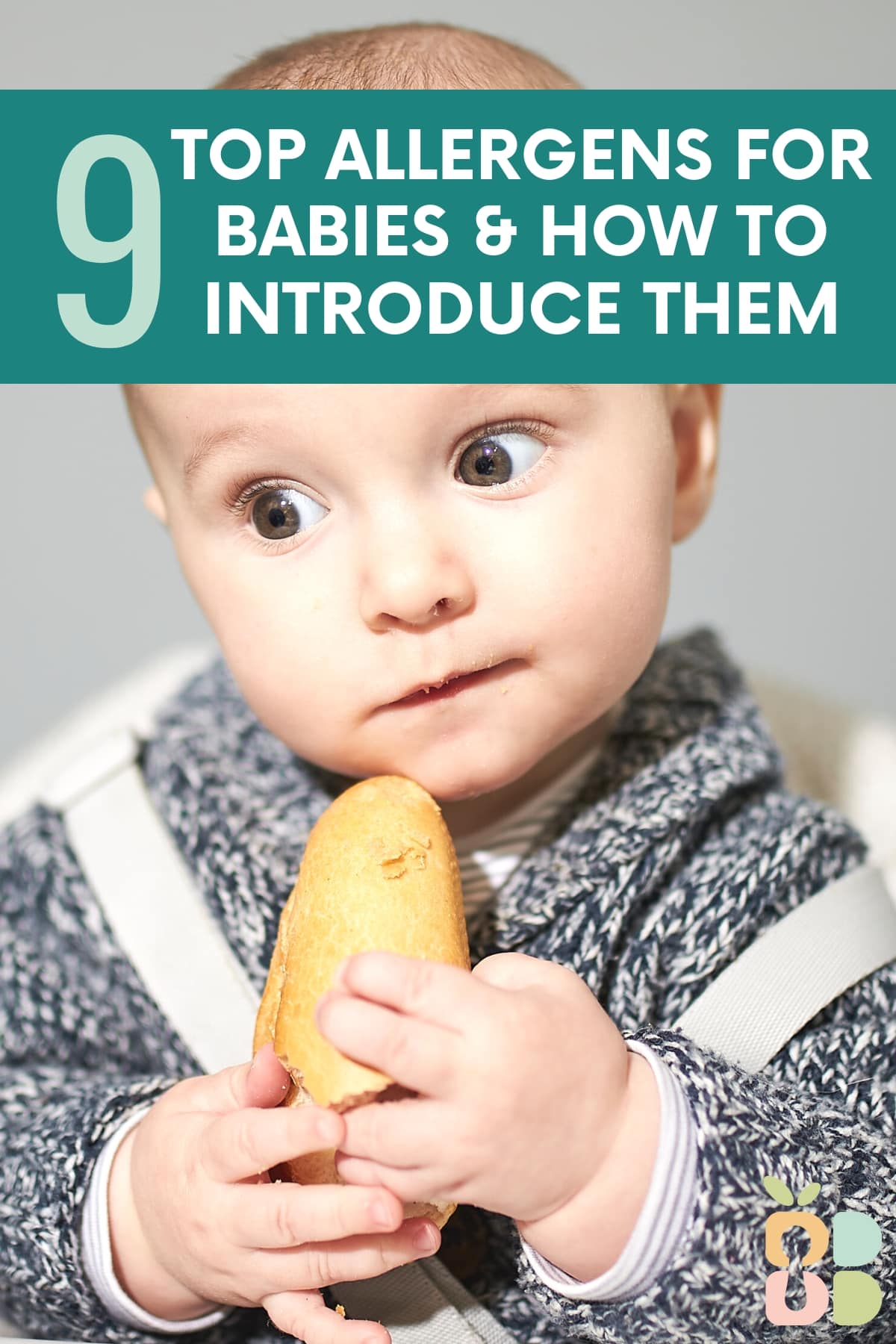
Food allergies among kids are on the rise, and doctors and allergists still don't know why. It can be scary as a new parent to give foods like peanuts, eggs, and fish to babies for the first time with food allergies being so common in kids. But not to worry, introducing allergens is GOOD for your baby, and is nothing to stress about if your baby falls in the normal/low risk category (most do!). So let's dive into how to introduce food allergens to babies who are starting solids.
Why Is It Important To Introduce Allergens to Babies?
Previous advice on starting solids told parents to hold off on introducing major allergens (like peanuts) to babies until 3 years of age for fear that starting too early could cause an allergy. Now the research tells us the opposite - that introducing common allergens like peanuts and eggs into babies' diets early and often could actually reduce the risk of developing an allergy! Though the current research we have is based largely on peanuts and eggs, most dietitians, including myself, recommend including all allergens as part of a balanced and varied diet from the very beginning.
Top Allergen Foods For Babies
While any food could be a potential allergen, the top 9 allergenic foods cause 90% of food allergies children. They are:
- Milk (cow's milk)
- Eggs
- Tree nuts
- Peanuts
- Fish
- Shellfish
- Wheat
- Soy
- Sesame
While there are other foods that could cause a potential allergic reaction, the foods listed above are the most common and the ones to pay close attention to when starting solids with your baby.
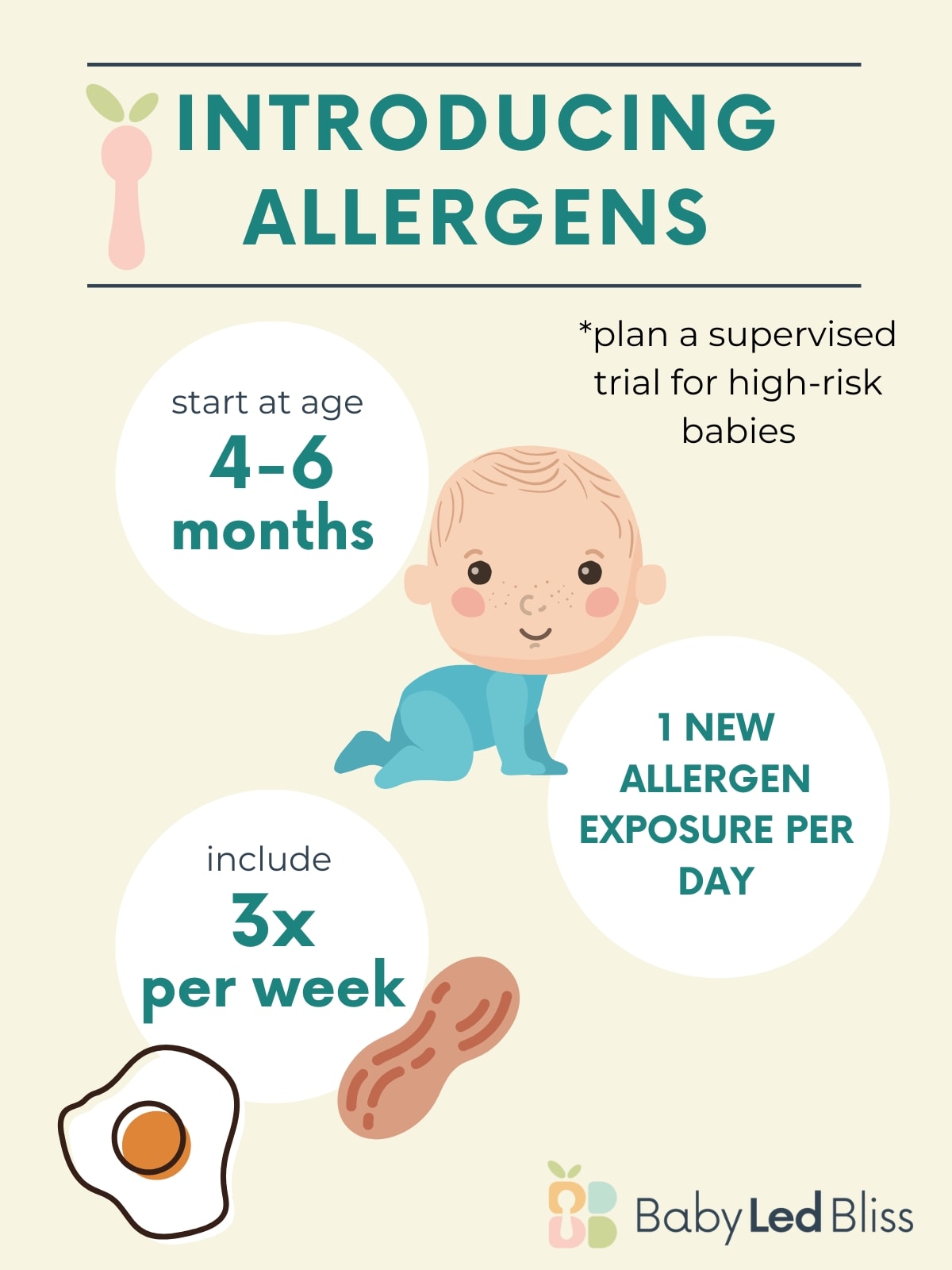
When To Introduce Allergens To Babies
For most babies, potential food allergens should be introduced around 6 months of age when they start solids. This includes normal or low-risk babies: those with no eczema or signs of a food allergy. Introduce allergens along with other foods when baby starts solids around 6 months of age, and continue feeding allergens as they naturally occur in your family meals, trying to keep them in the weekly rotation. (More on how to do that below.)
Moderate risk babies may have moderate eczema but don't have any known food allergies. Introduce allergens in a baby-friendly form around 6 months of age, and include them around 3 times a week if you can, focusing especially on peanuts and eggs.
High risk babies may have severe eczema or a known existing allergy to eggs or peanuts. Talk with your baby's doctor about introducing allergens, like peanuts and eggs, under medical supervision as early as 4 months of age, but not before. Once cleared by a doctor, include allergens often, at least 3 times a week, focusing especially on peanuts and eggs.
How To Introduce Allergens to Babies
Once you've determined that your baby is ready to start eating solids (about 6 months of age for baby led weaning babes), dive right in! If necessary, introduce allergens under a medically supervised trial first. You may start solids closer to 4 months if you have a high risk babe (see above). If your baby is not at high risk, there's no need to do a supervised trial, just proceed with introducing foods to your little one with these guidelines:
- Introduce only one potential allergen per day. This will make it easier to determine the cause in the event that your baby has a reaction. While you can introduce multiple other foods at a time, stick to serving only one allergen per day at first, with other foods you know do not cause a reaction. This should be easy with baby led weaning since you will probably only give your baby one meal a day at first. So if you're serving eggs, leave out any other potential allergens for that meal.
- Observe your baby. It's best to introduce allergens early in the day and at least a couple hours before nap time so that you can observe baby for a few hours for a reaction.
- Repeat with other potentially allergenic foods on different days.
- Keep offering allergens often. Once you've introduced baby to the major allergens, keep offering them! This is especially important if your baby is at high risk for allergies. Keep serving potential allergens in accordance to your family's meals. If your baby is at low risk, you can be more relaxed about it, but if you have a higher risk babe, you may need to make more of an effort to offer peanuts and eggs 3 times per week.
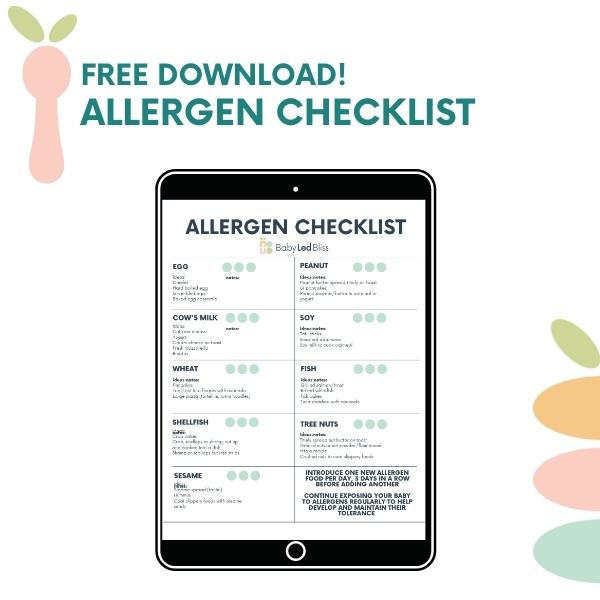
Baby Led Weaning Friendly Ways to Offer Allergens
Peanuts - Peanut butter is the easiest (make sure it has no added sugar)! Stir into oatmeal, yogurt, or applesauce, spread onto toast fingers or pancakes, bake into oatmeal or muffins, blend into smoothies
Tree Nuts - use almond butter or other unsweetened nut butters just like peanut butter (above); crush walnuts, pecans or other tree nuts into crumbs and coat slippery foods, sprinkle on yogurt or oatmeal, or use as breading for chicken or fish
Eggs - scrambled, boiled, or as an omelet, stirred into hot oatmeal, French toast, veggie and egg casseroles or muffins
- Milk - smoothies, stir into oatmeal (or use to cook the oats), whole milk plain yogurt or cottage cheese (on toast or with a soft spoon)
Shellfish - shrimp or lobster cut into finger sized strips, shrimp patties, homemade crab cakes
Fish - soft cooked flaky fish of any kind, salmon patties, canned tuna mixed with mashed avocado
Wheat - toast fingers, homemade pancakes or waffles with wheat flour, whole wheat pasta, roll slippery foods like avocado in wheat germ or wheat bran
Soy - edamame (smashed if necessary), tofu, meat or vegetables cooked soft with low sodium soy sauce or miso paste
Sesame - tahini (used like nut butter in the examples above), sesame seeds sprinkled on yogurt or oatmeal, or for coating slippery foods
Do I Need Specialty Products?
Peanut- and egg- containing products for the purpose of allergen exposure for babies (such as Lil Mixins or Ready Set Food) can be a great tool if you're nervous about serving allergens to your little one or if your family doesn't eat them often. But in general, I find them expensive and unnecessary if you already have natural peanut butter and eggs in your house. Peanut puff snacks (such as Bamba or Puffworks) are a fun, less messy change-up for a snack that I will give every once in a while, but I don't typically buy them since they can be difficult to find and pretty costly. I do love pure peanut powder (like Crazy Richard's) for babies, since it thickens things like yogurt and oatmeal nicely, and is an easy way to get peanuts in for little ones.
Be sure to read how to modify recipes for BLW and the safety guidelines for serving all foods to babies before beginning baby led weaning!

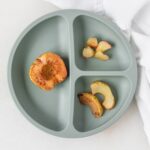


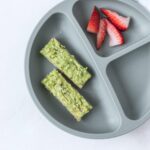
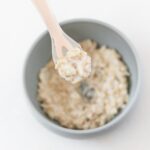




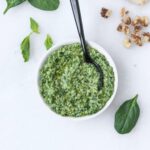





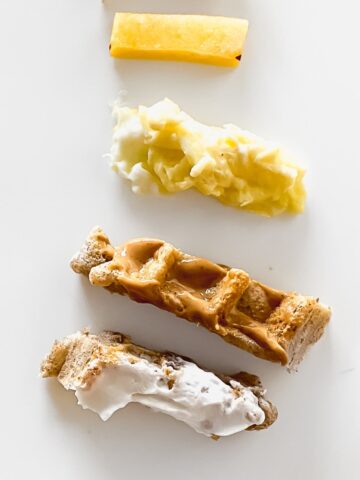
Leave a Reply